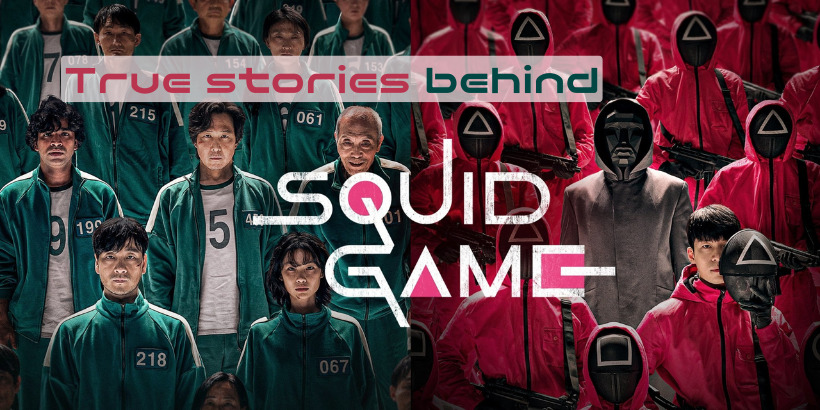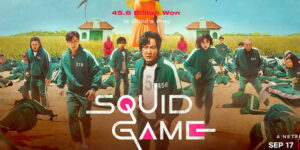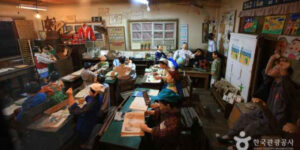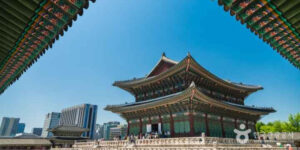Squid Game, the South Korean series that captivated the world, is inspired by several real-life elements and events, although the plot itself is fictional. However, the show’s creators incorporated societal themes and social critiques drawn from reality. Here are some very interesting stories and elements that influenced the series:
1.Traditional Korean Games
The games the participants face in Squid Game are partly based on traditional Korean childhood games, such as the “squid game” (a popular children’s game in South Korea). This adds authenticity to the show while also intensifying the shock when these games are associated with life-and-death stakes.
2. South Korea’s Debt Crisis
South Korea has one of the highest household debt-to-GDP ratios in the world. Many individuals struggle under crippling loans, often taken out to pay for education, housing, or to start businesses. Stories of people turning to desperate measures, such as gambling, loan sharks, or even crime to repay their debts, mirror the participants’ struggles in Squid Game.
- In the 1997 Asian Financial Crisis, thousands of South Koreans lost their jobs and savings, leading to a spike in personal bankruptcies and suicides.
- Recent years have seen a rise in “debt slaves,” individuals trapped in an endless cycle of repayment due to predatory interest rates.
3. The Sewol Ferry Disaster (2014)
The tragic sinking of the Sewol Ferry, which killed over 300 people, mostly high school students, highlighted systemic failures in South Korean society, including corruption, neglect, and prioritization of profits over human lives. This event deeply affected the national psyche and is often cited in art and media critiquing societal structures. Squid Game’s exploration of how the powerful exploit the vulnerable could be seen as an indirect reflection of this.
4. The Education System and Competition
In South Korea, the academic pressure is extreme. Students are subjected to rigorous standardized tests, and failure can be seen as a social disgrace. Squid Game touches on this theme by showing individuals who have failed in society and are desperately seeking redemption through the games. The intensity of the competition in the series can be seen as a critique of the education system and societal expectations.
5. Real-Life Deadly Competitions
While there hasn’t been an event identical to the life-or-death games in Squid Game, there have been deadly competitions rooted in desperation:
- Reality TV Exploitation: Some reality shows in South Korea and globally have been criticized for exploiting contestants’ financial or personal hardships for entertainment. The psychological toll on participants has led to tragic outcomes, including suicides.
6. The Daejeon Massacre (1950)
During the Korean War, tens of thousands of civilians were executed by the South Korean government under suspicion of supporting communists. Though not directly linked to Squid Game, this history of indiscriminate mass violence resonates with the series’ themes of innocent lives being sacrificed by those in power.
7. Underground Gambling Rings
Illegal gambling dens exist worldwide, but in South Korea, they’ve often been tied to organized crime. Stories of people losing everything in underground betting, becoming indebted to dangerous loan sharks, and being forced into labor or worse, align with the show’s depiction of desperate participants driven to the games.
8. The Influence of Class Divide in Korea
The growing wealth gap in South Korea is stark. Many South Koreans feel that their socioeconomic status is determined at birth, leading to widespread frustration and disillusionment. This class divide is a recurring theme in Squid Game and is similarly explored in films like Parasite. True stories of people being pushed into poverty while the wealthy live extravagantly are not uncommon.
9. Organ Trafficking
Although not a central focus of the show, the subplot involving organ harvesting reflects a real and chilling issue. Organ trafficking networks target vulnerable populations worldwide, particularly those in dire financial straits, and force them to sell their organs or harvest them illegally.
10. Protests and Worker Exploitation
South Korea has a history of workers’ protests due to poor conditions and exploitation, especially in industries like manufacturing and shipping. Some workers have faced extreme measures to fight for basic rights, including hunger strikes or climbing industrial cranes to make their voices heard. These struggles for dignity against systemic oppression are mirrored in the series.
While Squid Game isn’t based on one true story, its chilling realism comes from its deep roots in societal issues that resonate both in South Korea and globally. It combines these elements into a fictional narrative to reflect the real struggles and desperation faced by many people today.












